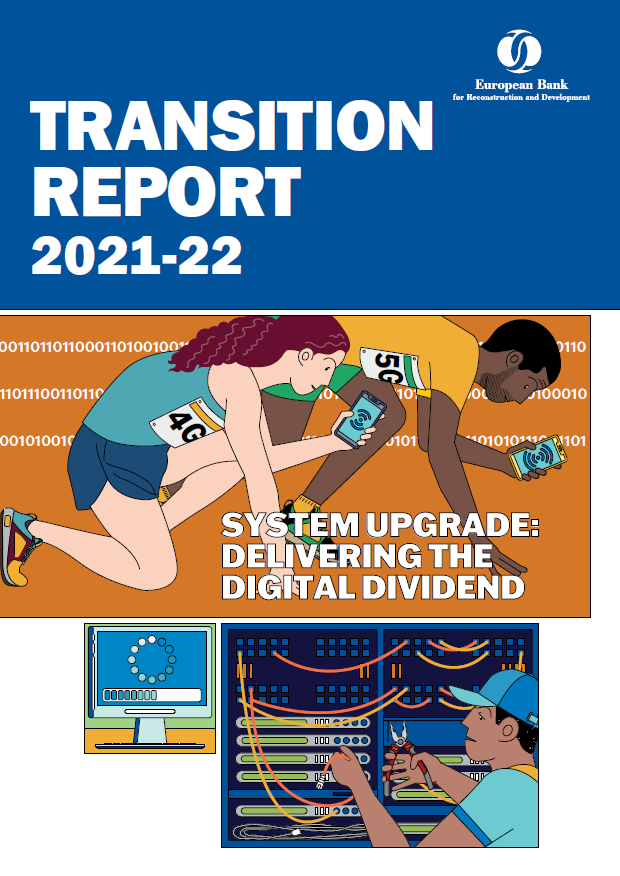
- Details
"This report explores ways in which economies in the EBRD regions can deliver the digital dividend, both in the context of the global Covid-19 pandemic and beyond. Building on rich sources of data, it introduces a new index of digital transformation and provides an overview of digital divides across and within countries.
While economies with medium levels of digitalisation have been catching up with advanced economies, those with the lowest levels have been falling further behind. Within countries, while individuals with medium levels of education and income and the middle-aged have been catching up with the most digitally literate, older individuals and those with lower levels of education and income are increasingly being left behind.
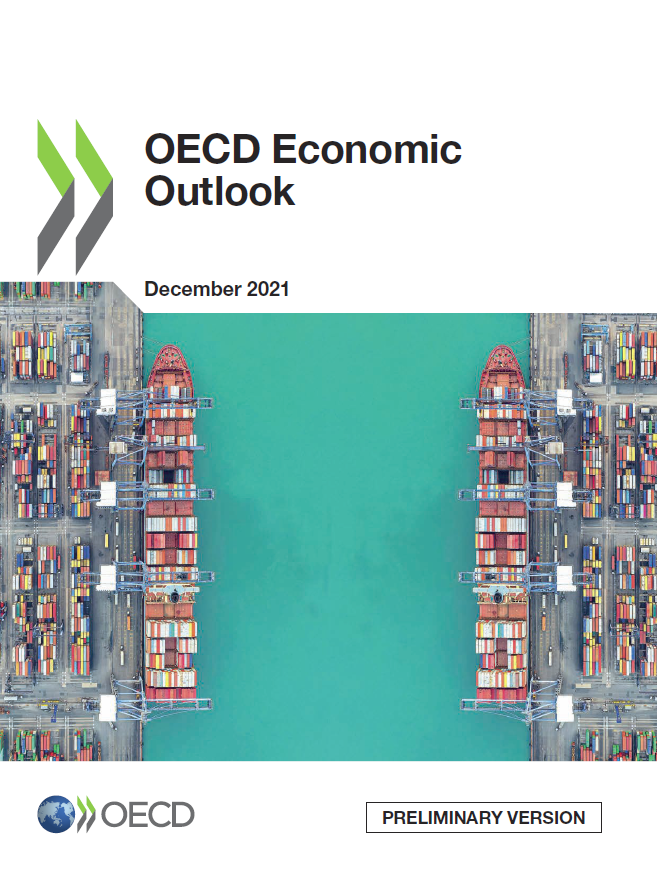
- Details
"The global recovery from the COVID-19 pandemic is uneven and becoming imbalanced. The OECD Economic Outlook, Volume 2021 Issue 2, highlights the continued benefits of vaccinations and strong policy support for the global economy, but also points to the risks and policy challenges arising from supply constraints and rising inflation pressures.
This issue includes a general assessment of the macroeconomic situation, and a chapter summarising developments and providing projections for each individual country. Coverage is provided for all OECD members as well as for selected partner economies."

- Details
"Financial institutions in emerging economies show low adoption of comprehensive climate risk management and disclosures. Support by international partners and the regulatory framework will be key to helping financial sector to recognize and manage financial risks associated with climate change, a survey by the European Bank for Reconstruction and Development (EBRD) among partner financial institutions (PFIs) shows."
Read more … Readiness of the Financial Sector for the Impacts of Climate Change
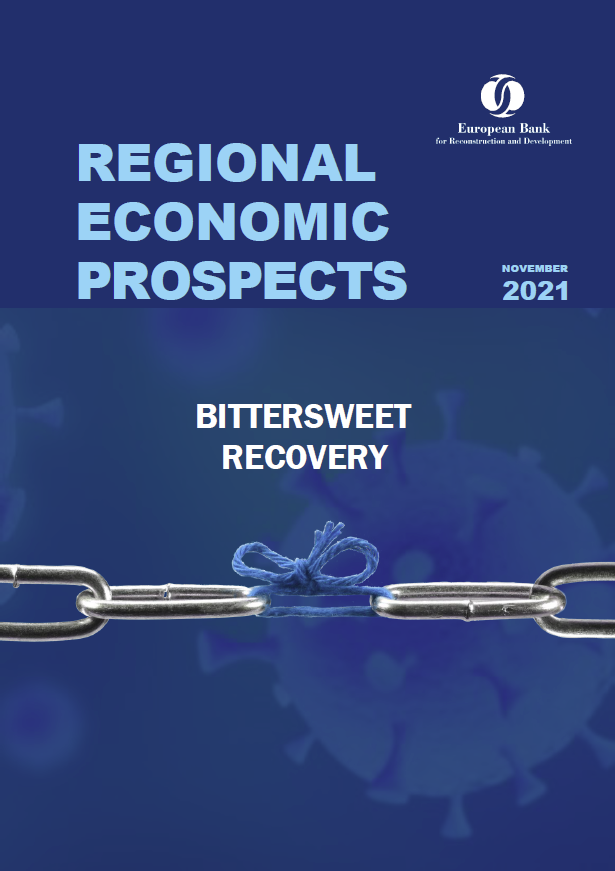
- Details
"The European Bank for Reconstruction and Development (EBRD) has raised its forecast for its regions for 2021 to 5.5 per cent in its latest Regional Economic Prospects report.
While this represents an upward revision of 1.3 percentage points over its June forecast following a strong performance in the first half-year, the Bank warns of serious threats ahead.
High commodity and energy prices, tight labour markets, supply chain disruption and currency depreciations in some EBRD economies have begun to push up inflation even before the latest spike in Covid-19 infection cases. On average, inflation in the EBRD regions exceeded its end of 2019 levels by 3 percentage points in September 2021. In response, a number of central banks in the EBRD regions have raised policy interest rates."

- Details
The EBRD Business Guide is an online platform for SMEs which employees of financial institutions will find useful when working with SME. The site provides information and resources on how SMEs have resolved challenges, legal information and tools. The resource offers a range of modules and templates on finance, strategy and planning, HR as well as checklists on digitalization, work safety and other.
Read more … EBRD Business Guide – an online platform for SMEs

- Details
COP26, or the 2021 United Nations Climate Change Conference, brought international stakeholders together to accelerate action towards the goals of the Paris Agreement and the UN Framework Convention on Climate Change. It's taking place in Glasgow.
"The stake are very high, as the climate emergency, highlighted in the IPCC report from earlier this year, requires urgent and decisive action from the world’s governments.
The climate emergency cannot remain an abstract notion but must become a strong driver of macroeconomic policy if we are to avoid the “hell of earth”.
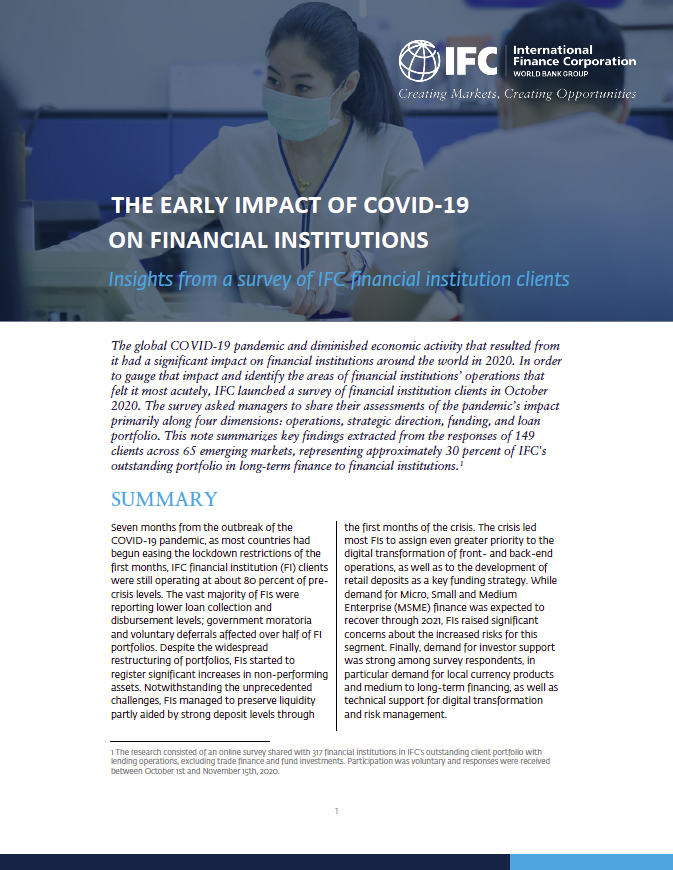
- Details
"The global COVID-19 pandemic and diminished economic activity that resulted from it had a significant impact on financial institutions around the world in 2020. In order to gauge that impact and identify the areas of financial institutions’ operations that felt it most acutely, IFC launched a survey of financial institution clients in October 2020. The survey asked managers to share their assessments of the pandemic’s impact primarily along four dimensions: operations, strategic direction, funding, and loan portfolio. This note summarizes key findings extracted from the responses of 149 clients across 65 emerging markets, representing approximately 30 percent of IFC's outstanding portfolio in long-term finance to financial institutions.
Read more … The Early Impact of COVID-19 on Financial Institutions

- Details
"The transition towards a low-carbon, climate-resilient economy is increasingly shaping business globally and across the economies where the EBRD invests. There is now broad recognition that climate change is a systemic source of risk to business and financial stability, and that companies need to strengthen their corporate climate governance in order to adjust to this shifting market context.
Read more … Gaps in climate disclosure will hit corporate access to capital
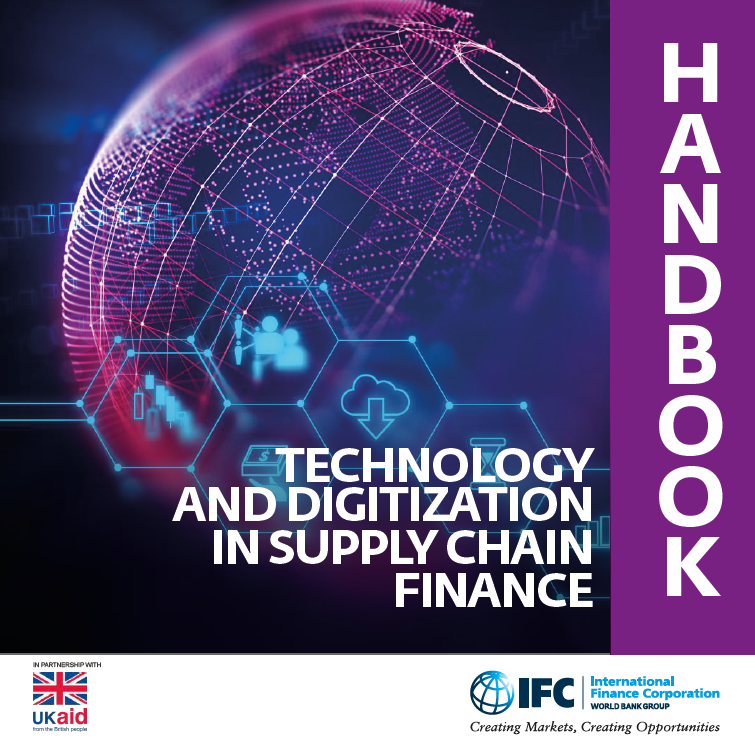
- Details
"Micro-, small-, and medium-sized enterprises face significant challenges in obtaining the financing and other resources they need to thrive. IFC, as a member of the World Bank Group, is committed to supporting these businesses by mobilizing private and public sector stakeholders to expand financial inclusion.
Digital integration of “traditional” retailers and distributors along supply chains can establish a pathway toward financial inclusion." This IFC handbook offers "expertise and lessons learned with financial institutions that seek to integrate traditional businesses into digital-banking networks.
Read more … Handbook - Technology and Digitization in Supply-Chain Finance
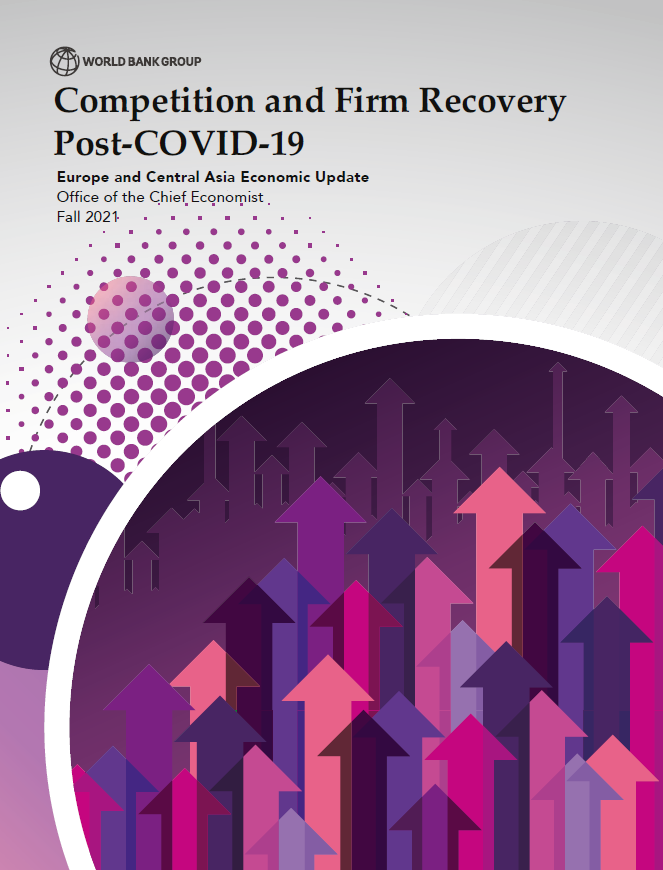
- Details
"Although global economic activity is recovering and output in Europe and Central Asia (ECA) is expected to grow in 2021, containing COVID-19 remains a challenge in the region. Enterprise survey data for the emerging and developing countries in the region show that COVID-19 had a profound and heterogeneous impact on firms. Smaller, younger, and female-run businesses were hit harder and had greater difficulty recovering. But the crisis also played a cleansing role and economic activity in ECA appears to have been reallocated toward more productive firms during the crisis, particularly in countries with more competitive markets.
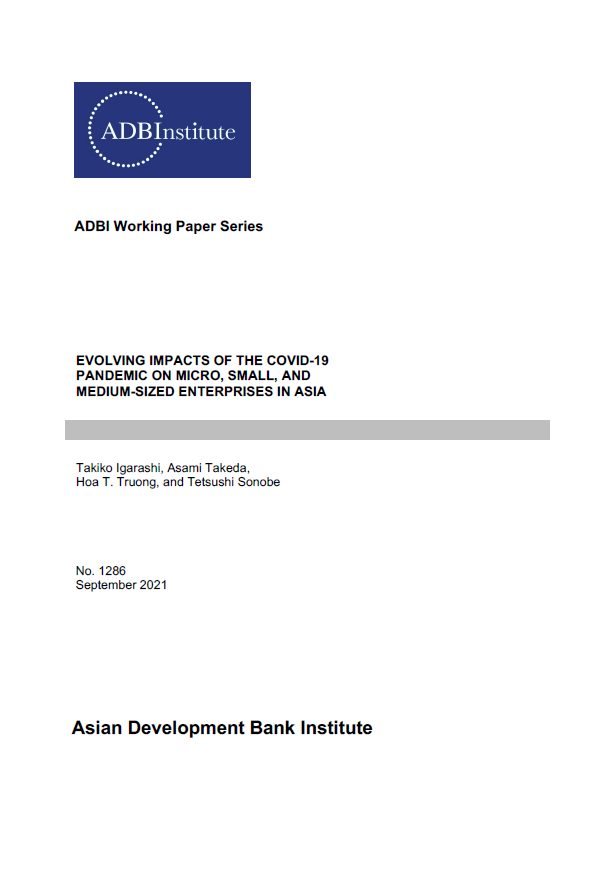
- Details
"Since the first quarter of 2020, micro, small, and medium-sized enterprises (MSMEs) in developing countries have faced significant hardship due to the economic shocks related to the COVID-19 pandemic. Questions arise, however, regarding the extent to which MSMEs’ hardship has varied between sectors and between countries over time, whether it is gender neutral, whether the digitalization of MSMEs could alleviate it, and whether government support has reached MSMEs." Authors aim to "answer these questions using new survey data from eight developing Asian countries around the middle and toward the end of 2020." They "found a wide variation in the severity of and responses to the pandemic impacts on MSMEs between sectors and between countries. Turning to common trends, significant findings were as follows. First, MSMEs’ sales and non-permanent employment tended to recover toward late 2020. Second, despite the general trend, the pandemic shocks concentrated on hard-hit industries, such as food processing, textiles, tourism, food and drink services, and education, which even deteriorated in the second half of 2020.
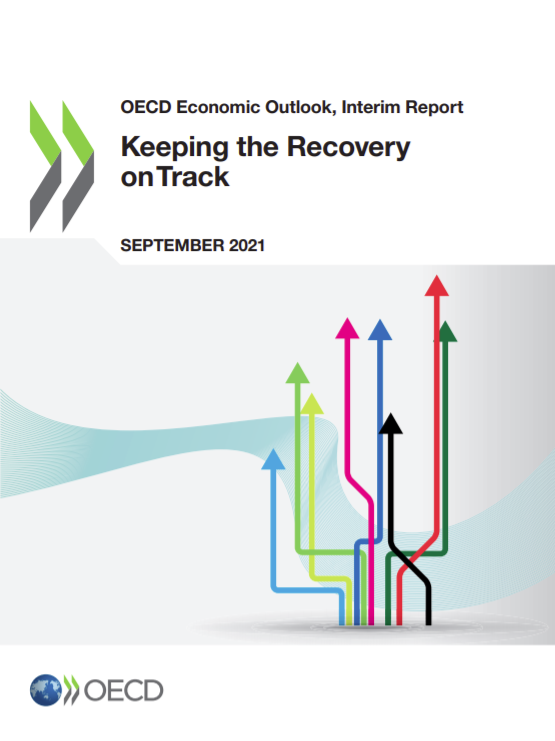
- Details
"The global economic recovery from the COVID-19 pandemic remains strong, yet too uneven. Uneven progress is increasing economic tensions that could undermine the recovery if not well managed by policymakers. Rising commodity and shipping prices and stretched supply chains as economies re-open rapidly are pushing up inflation everywhere but this is expected to be temporary. This Interim Report provides updates for G20 country projections made in the May 2021 issue of the OECD Economic Outlook"
Read more … OECD Economic Outlook, Interim Report September 2021


